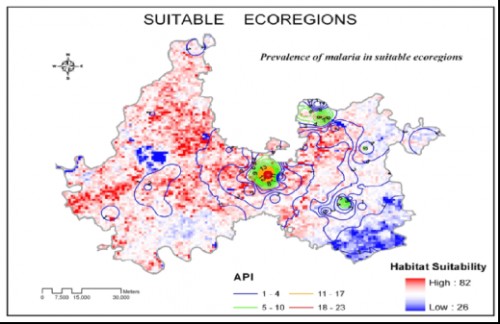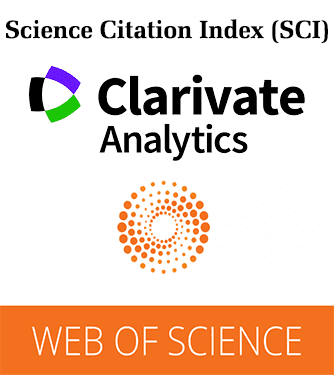Vol. 5, Issue 6, Part A (2018)
Integrating geospatial techniques and environmental landscape variables for malaria risk in Vadodara district, Gujarat (India)
Author(s): Bindu Bhatt and Janak P Joshi
Abstract: The environmental factors play a detrimental role in the development of all i.e. parasites, vectors and host and their relationship may be observed in terms the disease distribution and its pattern also shift. Landscape epidemiology defines how the temporal dynamics of host, vector and pathogen populations act together spatially within an accommodating environment to enable transmission. Three major environmental landscape variables, viz. Climate, Vegetation and Land use are integrated and processed into Geospatial environment to assess malaria risk hazards. The study therefore assesses environmental landscape for mosquito habitat in Vadodara District. The outcomes suggest that the landscape variables affect the sustainment of mosquito habitats and malaria transmission. The results indicate that the geographical distribution of malaria transmission and spatial diffusion are influenced by geo-climatic variables. It shows distinct seasonal patterns with very high suitability in North and west parts while eastern part have high habitat suitability. A glance at reported malaria cases, malaria seems to be under control excepting pockets with exception of eastern tribal part of district.
Related Graphics: Click here for more related graphics

Fig.: Suitable Ecoregions
Pages: 22-27 | 1507 Views 119 Downloads
How to cite this article:
Bindu Bhatt, Janak P Joshi. Integrating geospatial techniques and environmental landscape variables for malaria risk in Vadodara district, Gujarat (India). Int J Mosq Res 2018;5(6):22-27.







